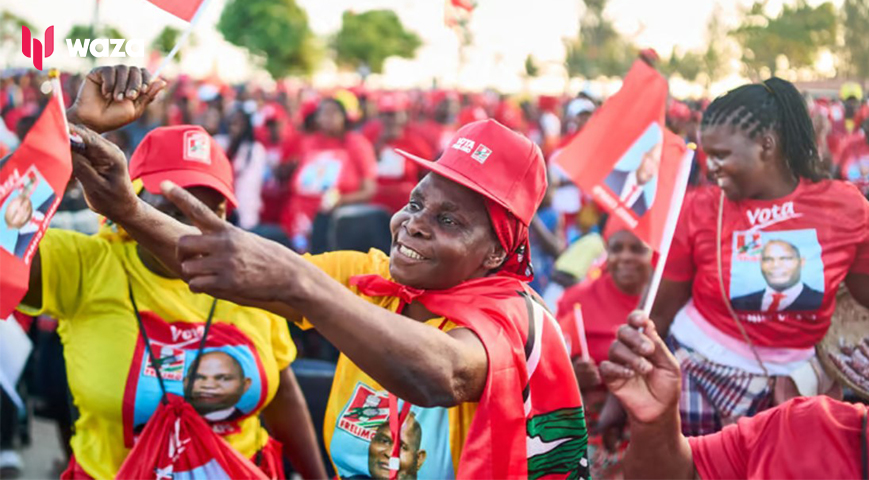Mozambique heads to the polls on Wednesday to elect a new president, governors, and members of parliament, as the country grapples with an Islamist insurgency that has stalled major natural gas projects critical to its economic future. The discovery of vast offshore gas deposits in 2010 had raised hopes of transforming the economy of one of the world’s poorest nations. However, since 2021, jihadist violence in the northern Cabo Delgado province, linked to the Islamic State, has halted progress on these lucrative projects.
Approximately 17 million Mozambicans have registered to vote, with polling stations open from 7:00 am to 6:00 pm local time. Official results are expected within two weeks. Despite growing public discontent with the ruling Mozambique Liberation Front (Frelimo), the socialist party, which has held power since the country’s independence from Portugal in 1975, is widely anticipated to win the elections.

Frelimo’s candidate for the presidency, Daniel Chapo, a relatively unknown 47-year-old provincial governor, is set to succeed President Filipe Nyusi, who is stepping down after completing his two constitutionally-allowed terms. Chapo will face competition from three other candidates: Ossufo Momade, 63, leader of the main opposition party Renamo; Venancio Mondlane, 50, a popular figure among younger voters who recently left Renamo to join the smaller Optimistic Party for the Development of Mozambique (Podemos); and Lutero Simango, 64, president of the centre-right Mozambique Democratic Movement, who has been a vocal critic of Frelimo’s leadership.
Did you read this?
There are widespread concerns about the integrity of the election, with accusations of fraud casting a shadow over previous polls. In 2019, opposition parties disputed the results after Frelimo secured 73% of the vote, alleging large-scale manipulation. Protests erupted again in 2023 following municipal elections, where claims of rigged results led to unrest and the accidental killing of several protesters by police.

Analysts worry that the election commission, which claims to have registered 17 million voters from a population of 33 million, is not credible. Political science lecturer Domingos Do Rosario and researcher Borges Nhamirre both expressed doubts about the electoral process, pointing to weak institutions and political maneuvering.
Chapo’s candidacy marks a generational shift, as he would be the first Mozambican president born after independence and the first not to have fought in the civil war between Frelimo and Renamo. At a final rally, he vowed to continue fighting terrorism and bring peace to gas-rich Cabo Delgado, where jihadist violence has devastated communities since 2017. Poverty remains a pressing issue, with 74.5% of the population living below the poverty line in 2023, according to the African Development Bank.









